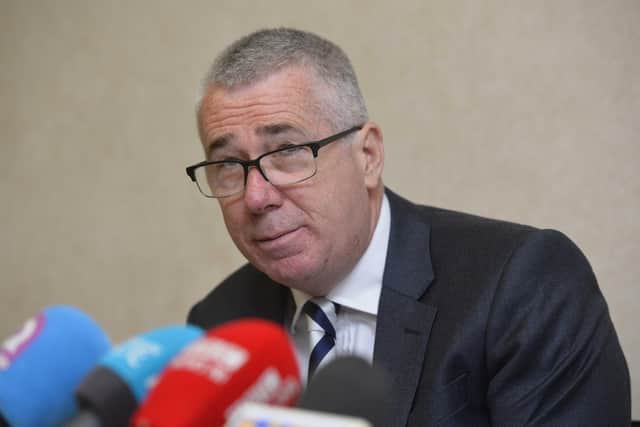Legacy Bill ‘needs support from victims’ says John Boutcher
and live on Freeview channel 276
Jon Boutcher, who heads an independent cold-case initiative called Operation Kenova, that is investigating a series of killings from the conflict, told MPs that the government was open to talking about potential changes.
The former Bedfordshire chief constable has received broad support from the victims’ sector in Northern Ireland for the approach he and his team have taken in examining historical killings.
Advertisement
Hide AdAdvertisement
Hide AdGiving evidence to the Northern Ireland Affairs Committee, Mr Boutcher said victims were concerned that a review of unsolved crimes planned in draft government legislation would be “superficial” and not proactively seek fresh information.


The government’s contentious legacy bill is currently going through Parliament.
It proposes a new approach to dealing with the conflict, with more focus on truth recovery rather than criminal justice.
Its most controversial aspects are the promise of immunity from prosecution for perpetrators who agree to provide information to a new truth body, and a move to end conflict-related civil cases and inquests.
Advertisement
Hide AdAdvertisement
Hide AdMr Boutcher said without changes to the bill he was concerned it would turn into “a shop that no-one’s going to visit”.
Under the plans, unsolved cases would be subject to reviews undertaken by a new Independent Commission for Reconciliation and Information Recovery (ICRIR).
Mr Boutcher said the government needed to provide more detail on what the reviews would entail.
“Families are concerned, and I understand this concern, that their cases will be looked at superficially, that only the readily available information will be considered,” he said.
Advertisement
Hide AdAdvertisement
Hide Ad“There won’t be the active seeking out of lines of inquiry and the robust recovery of material that’s held with the intelligence agencies previously that was kept within those agencies and not shared even with inquiries post-conflict and the Troubles.
“That needs to be set out in straightforward simple language so those families know they are going to get a review or investigation, call it what you will, that will make sure that every possible line of inquiry has been explored for them to understand what happened to their loved ones.”
Mr Boutcher said the government may seek to claim that an intensive reinvestigation process could take decades. He described that as “poppycock and nonsense”.
PSNI Deputy Chief Constable Mark Hamilton told committee members that the police would not offer an opinion on policy choices made by the government.
Advertisement
Hide AdAdvertisement
Hide AdHowever, he highlighted that the bill set out an approach that was significantly different from the current model.
Stormont’s Justice Minister Naomi Long also gave evidence to the committee.
She criticised the content of the bill and also the government’s bid to hasten its journey on to the statute book.
“The speed with which the bill is being pushed through Parliament risks not only creating bad law, but further undermining confidence in the whole process,” she said.